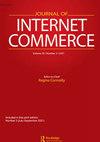Determinants of Nonpaying Bid Behavior in Online Auction Platforms
IF 4.1
Q2 BUSINESS
引用次数: 1
Abstract
Abstract The auction process can be divided into the auctioning, bidding, winning, and paying stages. Nonpaying bid behavior is a critical issue underlying the customer-to-customer (C2C) business model. This paper proposes and examines a research model that describes nonpaying bid behavior by concisely considering technological (platform quality), psychological (perceived risk), and individual (impulse buying inclination) aspects. The moderation effect of interaction–risk (combined interaction quality and perceived risk) on nonpaying attitude is investigated along with the influence of gender on such moderation effect. The proposed research model is examined by performing an empirical quantitative survey among users of a C2C auction platform. Based on data collected from 303 valid samples, results show that impulsive bidding inclination (individual aspect) and interaction quality (psychological aspect) are significantly associated with nonpaying bid behavior. Meanwhile, platform quality (technological aspect) and perceived risk (psychological aspect) are unlikely to determine nonpaying bid behaviors at the bid-paying stage. The moderation effect is significant, whereas the gender effect is insignificant. The managerial implications of these findings are also discussed along with some suggestions. This research highlights the value of modeling nonpaying bid behavior for C2C auction platforms.网络拍卖平台不出价行为的决定因素
拍卖过程可分为拍卖、竞买、中奖和付款阶段。不出价行为是客户对客户(C2C)商业模式的一个关键问题。本文提出并检验了一个研究模型,该模型通过简要考虑技术(平台质量)、心理(感知风险)和个人(冲动购买倾向)方面来描述不出价行为。研究了互动-风险(综合互动质量和感知风险)对不支付态度的调节效应,以及性别对这种调节效应的影响。通过在C2C拍卖平台的用户中进行实证定量调查来检验所提出的研究模型。基于303个有效样本的数据,结果表明,冲动性投标倾向(个体方面)和互动质量(心理方面)与不投标行为显著相关。同时,平台质量(技术方面)和感知风险(心理方面)不太可能决定出价支付阶段的不出价行为。适度效应显著,而性别效应不显著。还讨论了这些发现的管理含义以及一些建议。这项研究强调了C2C拍卖平台不出价行为建模的价值。
本文章由计算机程序翻译,如有差异,请以英文原文为准。
求助全文
约1分钟内获得全文
求助全文
来源期刊

Journal of Internet Commerce
BUSINESS-
CiteScore
10.50
自引率
7.00%
发文量
18
期刊介绍:
The business world has undergone many changes because of information technology, and the impact of the Internet may cause one of the biggest yet. While many people use the Internet for educational and entertainment purposes, organizations and companies are looking for ways to tie their internal networks to this global network to conduct electronic commerce. While companies have been conducting business electronically with suppliers and customers for many years, conducting online commerce via the Internet offers even greater opportunities for multinational, national, and even small businesses to cut costs, improve efficiency, and reach a global market.
 求助内容:
求助内容: 应助结果提醒方式:
应助结果提醒方式:


